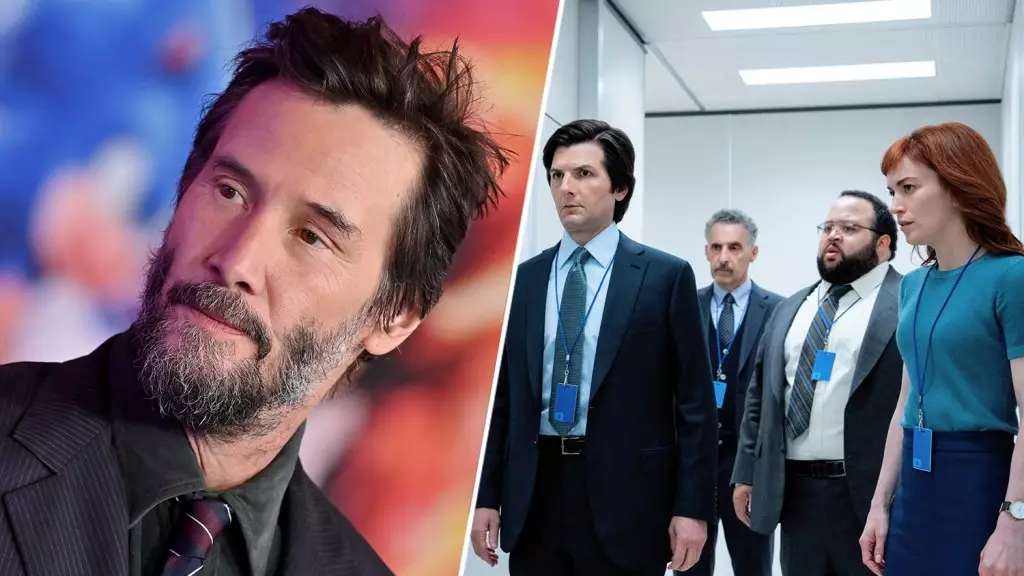As the spotlight returns to the enigmatic world of *Severance*, fans brace themselves for another thought-provoking exploration of corporate culture and identity. The Apple TV+ series has captured audiences with its unique premise—a reality where employees undergo a surgical procedure to separate their work and personal memories. This ingenious concept doesn’t just toy with science fiction; it reflects the complex dynamics of modern workplace culture. The second season promises to expand upon the show’s initial critique through enthralling plotlines and character development, all while threading societal commentary into its narrative fabric.
The Star-Studded Cameo and Its Significance
A highly anticipated element of the season premiere is the voice cameo by Keanu Reeves, which surfaces in a video titled ‘Lumon is Listening.’ Series creator Dan Erickson shed light on this intriguing decision while discussing the thought process behind selecting Reeves. The choice was deliberate—not merely a star-studded addition but a strategic move to enhance the show’s atmosphere. According to Erickson, the goal was to find a voice that evoked a sense of warmth while maintaining a sinister undertone, encapsulating the appealing yet disconcerting nature of the Lovecraftian corporate environment. This pivotal casting choice highlights the intricate relationship between performance and audience perception, a theme woven throughout the series.
Character Growth and the Perils of Surveillance
The narrative follows Mark (Adam Scott) and his colleagues, who find themselves grappling with the unforeseen ramifications of their severed existences. As the season unfolds, they wrestle with the consequences of their corporate choices and personal lives. This poignant reflection on the human condition emerges as a focal point; what price do individuals pay when they surrender their memories as part of a corporate machine? Season 2 hints at deepening this exploration, prompting viewers to confront their own complexities related to work, identity, and autonomy. This confrontation becomes even more relevant as the corporate landscape evolves in response to contemporary resignations and re-assessments of work-life balance.
Erickson’s commentary on the turbulent shifts within workplaces underscores the series’ relevance in today’s landscape. The release of Season 1 coincided with a pivotal societal change as a growing number of workers questioned the traditional office paradigm. The ongoing dialogues around remote work and potential alternatives reflect a broader cultural reckoning. As younger generations reshape their relationship with work, *Severance* poses critical inquiries: What is the essence of work? How do corporate structures shape our realities? The show serves as both entertainment and a mirror, reflecting the internal struggles facing individuals who sweat the small—and large—details of their professional lives.
With a powerful ensemble cast and a captivating narrative style, *Severance* is poised to tackle the complexities of choice and identity within its darkly comedic framework. As it delves deeper into the intersections between memory, surveillance, and corporate ambition, viewers are invited to not only dissect the facets of the show but also engage with their own professional realities. The second season promises to be a thrilling ride, examining fundamental questions that resonate all too well in the contemporary work environment. The stakes have never been higher, and the anticipation for what lies ahead in *Severance*’s complex narrative universe is palpable.
